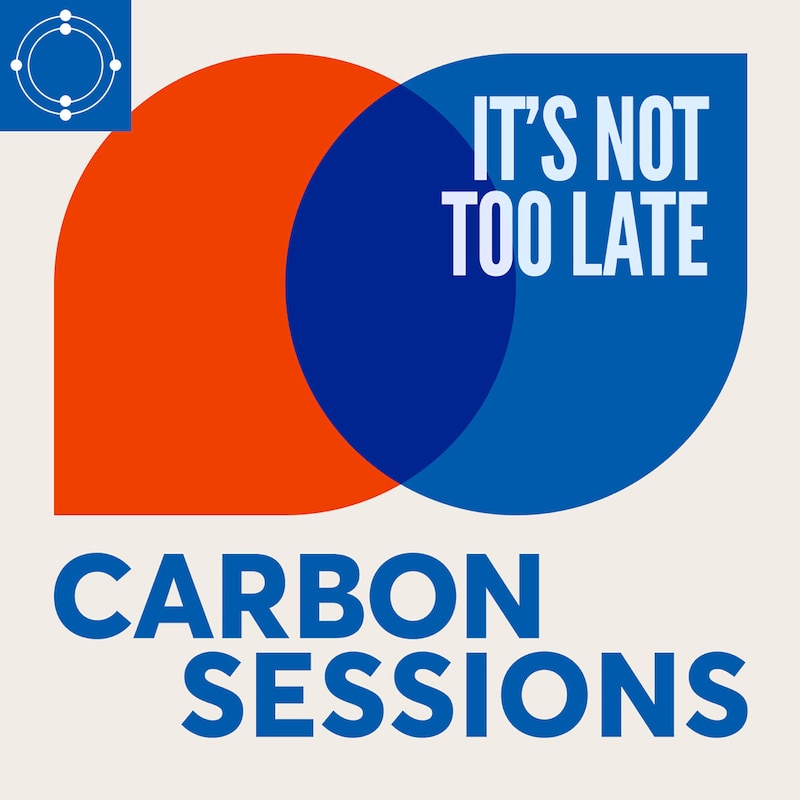Speaker:
00:00:00
, and just started sharing
all of this stuff and it.
2
:
00:00:02
It was really fascinating to learn
both about the octopus, which was what
3
:
00:00:08
we decided to center the story on.
4
:
00:00:10
But then also in parallel to that,
learning about ocean plastics and.
5
:
00:00:16
That whole side of things
was very eye opening too.
6
:
00:00:19
Yeah.
7
:
00:00:20
Yeah.
8
:
00:00:20
Super eye opening.
9
:
00:00:21
Like some of the things that I've learned
about ocean plastics, the great Pacific
10
:
00:00:26
plastic patch, you know, that huge mound
of plastic that's just floating out there.
11
:
00:00:31
That's bigger than Texas like that just.
12
:
00:00:33
Blew my mind that that's real.
13
:
00:00:35
And I guess there's one in the Atlantic
too, that rivals the Pacific one in size.
14
:
00:00:39
And it just, you realize all
the creatures that it affects,
15
:
00:00:42
like the octopus and I heard OC
occupy are really smart creatures.
16
:
00:00:46
Actually, they really are.
17
:
00:00:48
They actually have the IQ and capacity
of like a two year old human child
18
:
00:00:53
or like a dog, the trainability of a.
19
:
00:00:56
So they're really fascinating creatures.
20
:
00:00:59
They're mischievous.
21
:
00:01:00
They can like, they keep track of
people that have wronged them, or
22
:
00:01:04
like, there's this story of an octopus
in an aquarium where one of the
23
:
00:01:08
trainers or the workers, it didn't
like this worker for whatever reason.
24
:
00:01:13
So every time the worker would
turn his or her back to walk
25
:
00:01:15
away, it would spit water at it.
26
:
00:01:17
It was truly upset with this
worker and doing it on purpose.
27
:
00:01:21
They found.
28
:
00:01:22
So yeah, Actify are, are
super fascinating creatures.
29
:
00:01:25
And like one of the many creatures
under the ocean that are so smart,
30
:
00:01:29
like we look at, you know, dolphins
and whales and all these even sharks
31
:
00:01:34
are finding how this intelligence
that we never give them credit for.
32
:
00:01:37
It's just makes me really sad how we.
33
:
00:01:41
You know, polluting their
home so that they're, they're
34
:
00:01:44
not even standing a chance.
35
:
00:01:46
Yeah, I completely agree.
36
:
00:01:48
I think that was one of the eye-opening
pieces of knowledge that I learned
37
:
00:01:55
throughout creating this script.
38
:
00:01:56
Once we decided to choose an activist as
our main character, which we chose because
39
:
00:02:01
of some of the things Tanya mentioned of
it being mischievous and smart, and we
40
:
00:02:05
just thought it would be a fun character.
41
:
00:02:06
We were looking at where.
42
:
00:02:08
This octopus should live.
43
:
00:02:10
And I don't know where an
octopus would typically live.
44
:
00:02:13
I don't know much about it.
45
:
00:02:14
So I started doing research and it
did not take long to learn that many
46
:
00:02:18
are living in human trash right now.
47
:
00:02:21
And.
48
:
00:02:23
There are a lot of pictures of it, a
lot of information on it, but with human
49
:
00:02:28
trash becoming increasingly common in the
ocean, sometimes it's easier to find than
50
:
00:02:33
something like a seashell for a home.
51
:
00:02:35
So, Tanya, I don't know if you knew
that before, but I know for me that was.
52
:
00:02:40
that was a big moment to,
to learn more about that.
53
:
00:02:43
No, absolutely.
54
:
00:02:45
It was eye opening and we, I think we
kind of jokingly were feeling really bad
55
:
00:02:51
about collecting seashells and stuff.
56
:
00:02:53
Um, because we learned that that's an
actual problem for octopus, that they
57
:
00:02:59
sometimes will wear like shells to
cover themselves or protect themselves.
58
:
00:03:03
And they're not able to find.
59
:
00:03:06
Them as much anymore.
60
:
00:03:07
So they'll, they've started using ocean
plastics and coffee hands and, and
61
:
00:03:11
things that are, that make their way
from landfills to the bottom of the sea.
62
:
00:03:15
So it's very sad.
63
:
00:03:17
Yeah.
64
:
00:03:17
And then on top of those potentially
harming them, like there was one
65
:
00:03:21
picture that I remember from the
beginning of our research where
66
:
00:03:25
an octopus was living inside of a.
67
:
00:03:26
Piece of broken glass.
68
:
00:03:28
So on top of something like that,
potentially hurting them, some of the
69
:
00:03:31
ocean plastics can be leaking chemicals
that are harmful for them as well.
70
:
00:03:36
So was it hard to write it
so that it relates to kids?
71
:
00:03:41
Like this is such a huge problem
and it feels really daunting.
72
:
00:03:45
Like all these, all this plastic in
the oceans, like how is it to write
73
:
00:03:49
something that would relate to.




